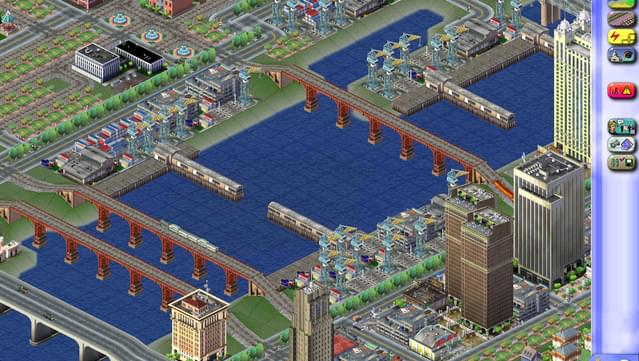

This time I'll get it right, just as long as I pay attention to the hard data more than the advisers or Sims. It's actually an enjoyable part of the game, because all that frustration is replaced by the anticipation of running a new experiment in a pristine new plot. Failed cities are ugly, claustrophobic burdens which require constant attention because they didn't achieve balance early on. You may never know-cities can become unmanageable at populations over 100,000-and trying to fix things sometimes feels futile. And even though population is plummeting, the roads are more clogged than ever. Now there's no fire or police coverage, and even more Sims are leaving (or, you know, burning to death). Now you're losing money, so you turn off services to keep from going broke-but that makes things worse. When services can't handle demand, Sims begin to leave. I eventually accepted it, though, because if I could solve every problem through expansion, many of the game's challenging trade-offs would be lost. Do I ever wish I could defy the game and pull a road out into the untouched land beyond my dotted line? All the time.
#Simcity 3000 review how to#
Decisions about density, what to build, and how to zone are hard, and trying something, watching it all fall apart, and then rezoning to see what happens is part of the addictive fun. The borders-every city is confined to the same sized square- put a hard limit on how creative you can be when designing high-population cities, but ultimately I like that they force tough trade-offs. Eventually, I yell back: if you want me to expand so much give me bigger borders, dummy! More people! More jobs! Build it all! I don't know what data it's using to inform demand, but it implies I'm doing something wrong even when I'm balancing RCI and optimizing services with the precision and efficiency of an MLG pro. Now residential and industrial demand are high. Industrial demand is high, even though there are 500 unfilled “low-wealth” jobs (a euphemism that would make any politician proud). Weirdly, though, SimCity actually seems to encourage failure, making learning more difficult than it has to be.įor instance, the ratio of residential to commercial to industrial zoning has a very small sweet spot, which I like-it's a hard game to master-but SimCity's advisers almost always push me to solve problems by expanding rather than by achieving balance with what I have. There's almost always room to bulldoze half a city, pass a bond measure, and start over. Learning through failure is a frustration SimCity gets away with by allowing for failure. Sims sometimes do dumb things, or have unexpected complaints, and identifying and solving these behaviors takes time. Even after nearly 100 hours, I'm still discovering new quirks and features of the simulation.
#Simcity 3000 review trial#
The only way to learn how to plan for and balance all this is trial and error. Getting a handle on such minutiae becomes overwhelming when I try to expand too fast. And because service vehicles like fire trucks have to actually drive to where they're needed, seemingly minor details like whether they're more likely to make right or left turns out of their garages really do matter. Bigger cities also need more water, more power, more sewage treatment, and more garbage trucks, as well as police, fire, and health coverage, public transportation, parks, and schools.īuildings can be upgraded, but even upgrades such as extra water pumps and fire truck garages need space. As houses become towers, too many intersections and not enough high-capacity avenues will cause traffic gridlocks, and density won't increase at all without enough space. The early game is all about anticipating the midgame. Big decisions like this happen at every stage of a city's development, and my choices often influence how I feel about my city more than my city itself. The type of power plant I choose first will influence the whole narrative of my city, not because I can't switch at any time, but because I refuse to be an inconsistent mayor.

Clean energy solutions-wind and solar plants-also pump power into the city, but require swaths of valuable land to keep the lights on. In the beginning, demand for services is low, and how you choose to provide power to your city is the most important decision early in the game.Ĭoal and oil plants cough out pollution and require resources from mines or the Global Market, an online feature that functions as a commodities exchange enabling players to buy and sell resources. At the macro scale, beautiful data overlays show me subterranean concentrations of water, as well as resources like ore, coal, and oil, which I can exploit when my city is ready for heavy industry.


 0 kommentar(er)
0 kommentar(er)
